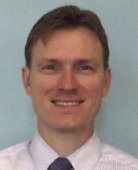You are here
Job Outlook
From athletic trainer to veterinary technician, there are a wide variety of careers in the health care field. According to the Bureau of Labor Statistic's Occupational Outlook Handbook, educational preparation and training for healthcare fields varies by the career you choose, and can go from no degree to associate, bachelor's master's, doctorate and beyond.
Most health care-related occupations are expected to grow faster than the national average, meaning that people who choose these careers can expect to find employment in these fields. Among the fastest growing health care-related occupations are:
- Biomedical engineers
- Network systems and data communications analyst
- Home health aides
- Personal and home care aides
- Medical scientists, except epidemiologists
- Physician assistant
- Skin care specialists
- Biochemists and biophysicists
- Athletic trainers
- Physical therapist aides
- Dental hygienists
- Veterinary technologists and technicians
Average earnings of non-supervisory workers in most health care segments are higher than the average for all private industry, with hospital workers earning considerably more than the average and those employed in nursing and residential care facilites and home health care services earning less. Average earnings often are higher in hospitals because the percentage of jobs requiring higher levels of education and training is greater than in other segments.
As in most industries, professionals and managers working in health care typically earn more than other workers in the industry. Wages in individual health care occupations vary as widely as the duties, level of education and training, and amount of responsibility required by the occupation. Earnings vary not only by type of establishment and occupation, but also by size; salaries tend to be higher in larger hospitals and group practices. Geographic locations also can affect earnings.
Rochester Bridges to the Doctorate
RIT/NTID's Dr. Peter Hauser explains how the Rochester Bridges to the Doctorate program will facilitate a transition for deaf and hard-of-hearing graduate students who are interested in going from master’s degree programs offered at the various colleges at Rochester Institute of Technology to Ph.D. programs at the University of Rochester.
